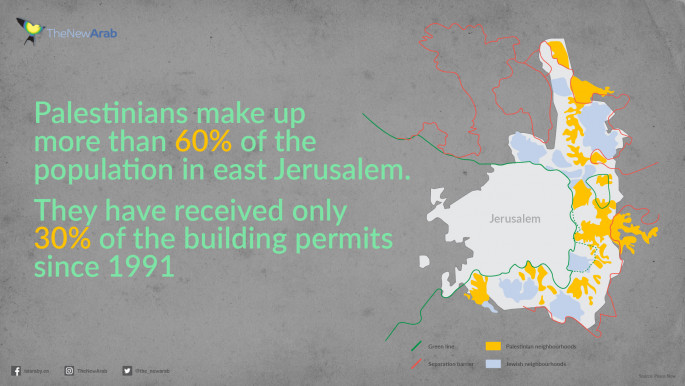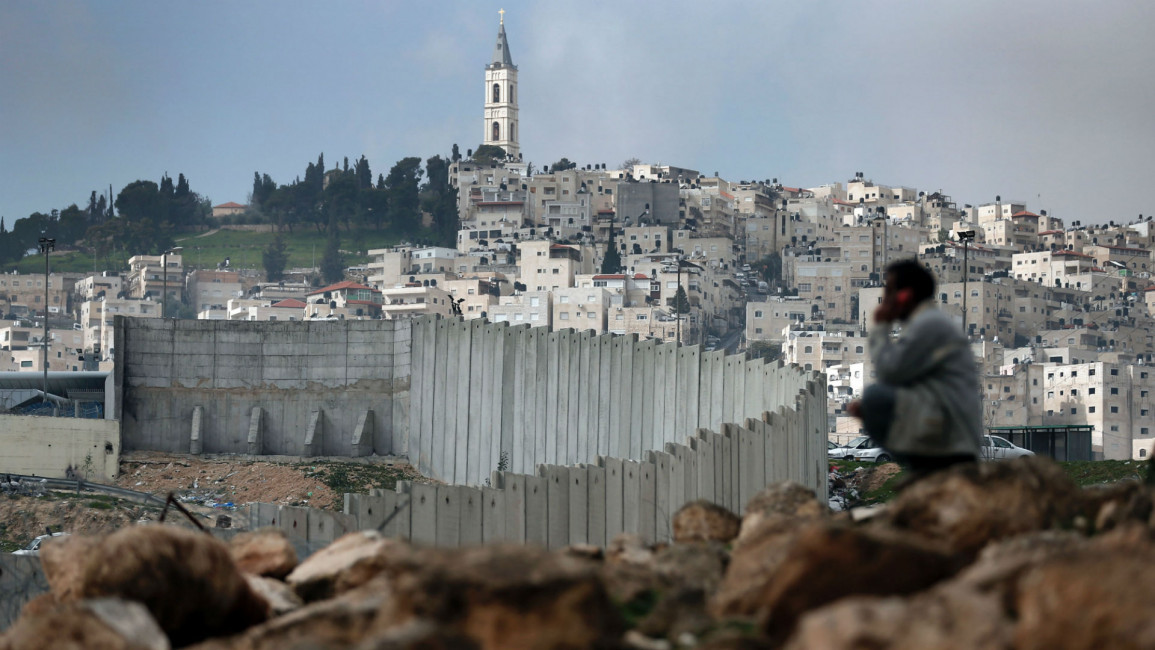New data reveals spike in West Bank settlement construction since Trump took office
Construction of Jewish settlements in Israeli-occupied east Jerusalem has spiked since US President Donald Trump took office in 2017, according to official data obtained by The Associated Press.
The new data also shows strong evidence of decades of systematic discrimination, illustrated by a huge gap in the number of construction permits granted to Jewish and Palestinian residents.
The expansion of Israeli settlements in east Jerusalem, which Israel seized along with the West Bank and Gaza in the 1967 war, threatens to further complicate one of the thorniest issues in the conflict.
The refusal to grant permits to Palestinian residents has confined them to crowded, poorly served neighbourhoods, with around half the population believed to be at risk of having their homes demolished.
The data was acquired and analysed by the Israeli settlement watchdog Peace Now, which says it only obtained the figures after a two-year battle with the municipality.
It says the numbers show that while Palestinians make up more than 60 percent of the population in east Jerusalem, they have received only 30 percent of the building permits issued since 1991.
Peace Now found that in the first two years of Trump's presidency, authorities approved 1,861 housing units in east Jerusalem settlements, a 60 percent increase from the 1,162 approved in the previous two years.
The figures show that 1,081 permits for settler housing were issued in 2017 alone, the highest annual number since 2000. A total of 1,233 housing units were approved for Palestinians in 2017 and 2018, according to Peace Now.
|
||
The figures are for construction permits issued by the municipality, the final step of a costly bureaucratic process that can take years to complete. The figures show that since 1991, the municipality has issued 21,834 permits for housing units in Jewish settlements in east Jerusalem and just 9,536 for Palestinian neighbourhoods.
Hagit Ofran, an expert on settlements who collected and analysed the data, said the discrepancy in permits dates back to 1967, when Israel expanded the city's municipal boundaries to take in large areas of open land that were then earmarked for Israeli settlements. At the same time, city planners set the boundaries of Palestinian neighbourhoods, preventing them from expanding.
"In the planning vision of Jerusalem there was no planning for the expansion of Palestinian neighborhoods," she said, adding that the government has initiated almost no construction in those neighborhoods, placing the burden of planning and permits entirely on the residents themselves.
Today, around 215,000 Jews live in east Jerusalem, mostly in built-up areas that Israel considers to be neighborhoods of its capital. Most of east Jerusalem's 340,000 Palestinian residents are crammed into increasingly overcrowded neighborhoods where there is little room to build.
Palestinians say the expense and difficulty of obtaining permits forces them to build illegally. Peace Now estimates that of the 40,000 housing units in Palestinian neighbourhoods of east Jerusalem, half have been built without permits.
"When you build illegally, without a permit, there's always a chance your house will be demolished," said Ofran.
B'Tselem, another Israeli rights group, says at least 112 housing units in east Jerusalem were demolished in the first seven months of this year - more than in any full year since at least 2004.
Every Israeli government since 1967 has actively promoted settlement construction, including during the peace process with the Palestinians.
But settlement approvals have accelerated in east Jerusalem and the West Bank since Trump took office, as Israel has encountered little if any resistance from a friendly White House.
On Tuesday, Prime Minister Benjamin Netanyahu vowed to annex the Jordan Valley, which makes up about a quarter of the West Bank, and other settlements there if his party wins next week's elections.
The fate of Jerusalem, which is home to holy sites sacred to Jews, Muslims and Christians, is at the heart of the decades-old conflict.
The Palestinians want east Jerusalem to be the capital of their future state, while Israel views the entire city as its capital.
Tensions have soared since Trump broke with international consensus by recognising Jerusalem as Israel's capital in 2017 and moving the US embassy there.



